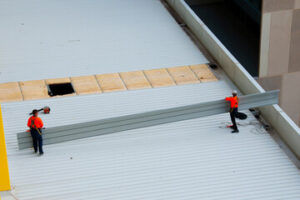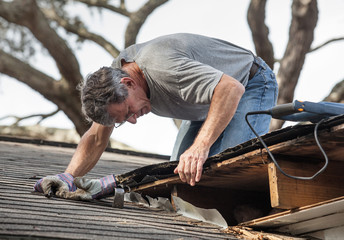In industrial settings, a leaky or decaying roof can have disastrous effects on equipment, contaminate sterile areas, and increase energy costs. Worse yet, an unsafe roof can also pose a safety hazard to workers. If you’re considering replacing your roof, should also carefully research the different companies offering industrial roofing services. If you’re unsure of how to proceed Industrial Roofing is here for you.
Asphalt-based shingles are usually the most cost-effective option, but you can also opt for architectural or modified bitumen shingles. Both materials can provide protection against harsh weather conditions and repel water. Unlike asphalt shingles, architectural shingles are expensive and require a professional installation. Asphalt-based shingles are ideal for low-slope roofs, as they have superior waterproofing and tensile strength. The life cycle cost of modified bitumen roofing is also reasonable.
Modified bitumen roofing is an option for heavy foot-traffic areas. Modified bitumen is a modified asphalt membrane that is applied in layers to provide a waterproof surface. This type of roofing material is extremely durable and requires annual inspection and cleaning to ensure maximum performance. Depending on the application and the building’s climate, modified bitumen roofs can also be durable enough to resist fires. But remember, you’ll need to maintain them annually.
Industrial roofs have different installation requirements than their commercial counterparts. Because they are typically larger, industrial roofs need to be installed in pieces. The installation process takes months instead of days or weeks. Industrial roofs require additional research. There are a lot of important factors to consider before you hire a contractor to perform your industrial roofing installation. So, take your time and research to find the right company for your industrial roofing installation. After all, your roof is one of your most important investments.
There are a variety of types of industrial roofing, and the right choice depends on your location and the roof slope. Consider the potential weather conditions, ventilation systems, and building needs. You may want to consider a single-ply membrane that is made of a thermoplastic polyolefin blend. It’s lightweight, fire-resistant, and extremely durable. A variety of other materials are available, as well, which you can choose from.
Another type of industrial roofing material is EPDM. This synthetic rubber is extremely durable and shock-absorbing, making it ideal for low-slope commercial buildings. EPDM comes in rolls and sheets and requires bonding cement and ballasts to adhere. EPDM roofs do not reflect sunlight, making them ideal for buildings that undergo frequent hailstorms. However, you may not want to use an EPDM roof in food preparation facilities, as it can be degraded by fats.
Flat roofing is the most common type of industrial roof. In most industrial settings, it is cheaper and easier to install than peaked roofs. However, it also has a few unique demands. Flat roofs require a roofing installer who knows how to handle them. A good roofing system can offer extended life and less maintenance. And if you’re building a large industrial facility, it may be best to choose a roof system that’s specifically designed for these kinds of environments.
Another type of roof material is gravel. Industrial gravel is great for reflecting UV rays. In addition, gravel is also a good way to reflect UV rays. A good contractor should know how to apply gravel on a roof for maximum effectiveness. Industrial roofing requires special expertise and experience. If you’re not sure about the best choice for your project, enlist the help of a professional. There’s no better way to protect your investment than to hire an industrial roofing contractor.
Modified bitumen roofing is the next generation of built-up roofing. It’s made of two or three plies of asphaltic felts. Modified bitumen is torch-applied or installed using cold adhesive. The layers of modified bitumen are solid when applied. Some manufacturers even offer modified cap sheets with solar reflectivity. This type of industrial roofing is typically flat, and the top layer of gravel is generally made of gravel to provide extra protection from UV rays.

